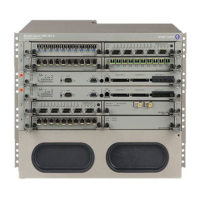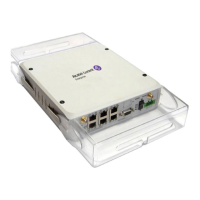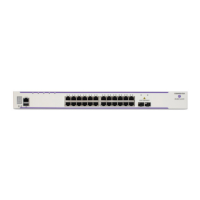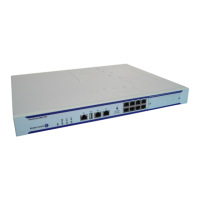Ports
Page 46 7750 SR OS Interface Configuration Guide
Multilink Point-to-Point Protocol (MLPPP)
Multilink point-to-point protocol is defined in the IETF RFC 1990, The PPP Multilink Protocol
(MP), and provides a way to distribute data across multiple links within an MLPPP bundle to
achieve high bandwidth. MLPPP allows for a single frame to be fragmented and transmitted across
multiple links. This allows for lower latency and also allows for a higher maximum receive unit
(MRU).
MP is negotiated during the initial LCP option negotiations of a standard PPP session. A router
indicates to its peer that it is willing to perform MLPPP by sending the MP option as part of the
initial LCP option negotiation. This negotiation indicates the following:
1. The system offering the option is capable of combining multiple physical links into one
logical link;
2. The system is capable of receiving upper layer protocol data units (PDU) fragmented
using the MP header and reassembling the fragments back into the original PDU for
processing;
3. The system is capable of receiving PDUs of size N octets where N is specified as part of
the option even if N is larger than the maximum receive unit (MRU) for a single physical
link.
Once MLPPP has been successfully negotiated, the sending system is free to send PDUs
encapsulated and/or fragmented with the MP header.
MP introduces a new protocol type with a protocol ID (PID) of Ox003d. Figure 1 and Figure 2
show the MLPPP fragment frame structure. Framing to indicate the beginning and end of the
encapsulation is the same as that used by PPP, and described in PPP in HDLC-like framing [RFC
1662]. MP frames use the same HDLC address and control pair value as PPP, namely: Address -
OxFF and Control - Ox03. The two octet protocol field is also structured the same as in PPP
encapsulation. A summary of the MP encapsulation is shown in Figure 1.
Figure 1: MLPPP 24-bit Fragment Format
1
10123456789
1
0
1
2
1
3
1
4
1
5
1
7
1
6
1
8
1
9
2
0
2
1
2
3
2
2
2
4
2
5
2
6
2
7
2
9
2
8
3
0
3
1
Control 0x03 PID 0x003dAddress 0xff
SequenceBE
Fragment Data...
FCSFragment Data

